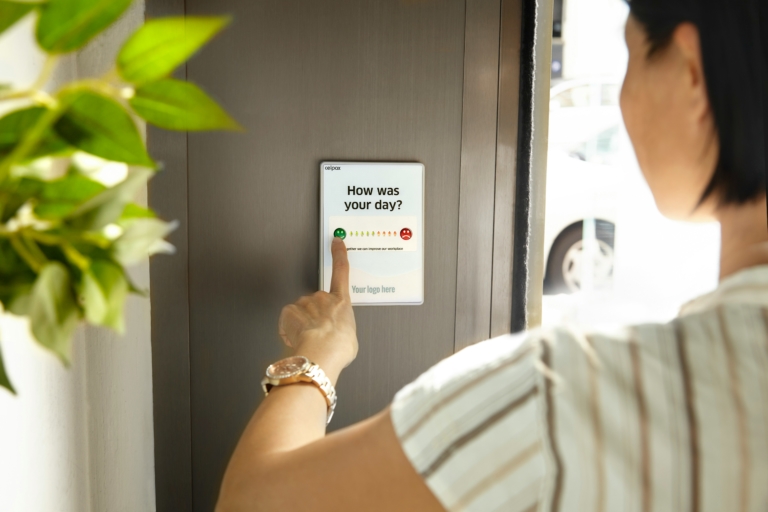Feedback is the cornerstone of personal and professional development, allowing reflection, improvement, and growth. Welcoming career feedback from colleagues, supervisors, and even oneself helps identify improvement areas and design targeted strategies to address growth. However, many individuals may struggle with receiving feedback due to the fear of criticism, uncertainty in processing it, or difficulties in implementing change. PathWise exists to support and empower professionals like you in embracing feedback and translating it into tangible progress.
In this comprehensive guide, we’ll explore the importance of welcoming feedback, its advantages, and how to effectively receive and implement it in the workplace. Join us as we equip you with valuable feedback-driven strategies to amplify your personal growth, foster a culture of continuous improvement, and enhance your career development.
Enhancing Personal and Professional Development
At the core of personal and professional development lies the ability to identify strengths and areas for improvement. Feedback, whether positive or constructive, serves as a valuable tool for individuals seeking to elevate their performance, as it helps identify skill gaps and gain insights into how others view their work.
By welcoming feedback, you open the door to targeted growth opportunities, allowing you to thrive in your career and showcase your commitment to excellence. As the Harvard Business Review states, employees who actively seek feedback see a 14.1% increase in their performance compared to those who don’t.
Fostering a Culture of Continuous Improvement
Receptive organizations promote a feedback-friendly environment, cultivating a culture where employees and leaders regularly exchange performance insights to drive continuous improvement. By embracing feedback, team members can assist each other in addressing challenges, enhancing skills, and fine-tuning processes for improved efficiency and productivity. This collaborative approach results in a motivated and engaged workforce poised for success. In a Gallup study, organizations prioritizing feedback report improved engagement and higher performance levels, underscoring the value of a feedback-based culture.
Strengthening Communication and Relationships
Welcoming feedback not only bolsters individual development but also strengthens interpersonal relationships within the workplace. Open dialogue cultivates trust, fosters mutual understanding, and increases collaboration and teamwork. By actively soliciting and embracing feedback from peers, supervisors, and subordinates, you demonstrate respect for their opinions and show commitment to a shared vision of success. In turn, you’ll enjoy a more cohesive working environment supporting individual and group aspirations.
Developing Emotional Intelligence
Embracing feedback cultivates emotional intelligence, a critical skill for navigating professional relationships and handling challenging situations. Emotional intelligence comprises self-awareness, self-regulation, empathy, motivation, and social skills, all contributing to effective communication and conflict resolution. By learning how to effectively receive feedback, even when it may be difficult to hear, you develop your emotional intelligence and enhance your abilities to understand and manage emotions in yourself and others. According to a study, individuals with high emotional intelligence experience increased job satisfaction and better professional performance.
Implementing Feedback: Receiving It Effectively
Understanding how to receive feedback effectively is crucial to maximize its benefits. Here are a few strategies for successfully accepting and processing feedback:
- Cultivate a receptive mindset: Approach feedback with an open and humble attitude, understanding that it’s a tool for growth and improvement.
- Listen actively: Pay close attention to what the person providing feedback is saying and strive to understand their perspective genuinely.
- Resist the urge to get defensive: It’s natural to feel defensive when receiving constructive criticism, but instead of reacting negatively, take a moment to reflect on the feedback and consider its validity.
- Ask relevant questions: Seek clarification if necessary, and engage in a two-way dialogue to gain deeper insights into the feedback.
- Express gratitude: Thank the person giving feedback for their time and insights, demonstrating appreciation, and encouraging future feedback sessions.
Implementing Feedback for Professional Development
Once you have effectively received and understood the feedback, it’s time to turn that knowledge into actionable improvements. Here’s how you can put feedback into practice:
- Reflect on the feedback: Upon receiving feedback, take some time to consider its content and implications carefully. Reflect on how the feedback aligns with your skills, performance, and goals.
- Develop an action plan: Identify specific areas where change is necessary and create a detailed plan outlining steps for improvement. Establish realistic but challenging goals, then break them down into manageable milestones.
- Monitor progress: Regularly review and evaluate your progress as you work on implementing your action plan. Adjust your approach as needed to ensure continued development.
- Revisit feedback: Periodically reconnect with the person who provided the feedback, updating them on your progress and seeking additional guidance as necessary.
- Repeat the process: Remember that personal and professional growth is ongoing. Consistently seek out feedback and apply it to your development strategy for continued success.
Embrace Career Feedback for Lasting Success
Welcoming and implementing feedback is key to unlocking your full potential in the workplace, contributing to personal growth, enhanced teamwork, continuous improvement, and developing critical soft skills. By recognizing the invaluable role feedback plays in your career journey and taking actionable steps to incorporate it into your development strategy, you open the door to long-lasting success and satisfaction.
Discover how PathWise can augment your feedback-driven growth. Explore our personalized career coaching options, professional development resources, and nurturing environment that will help you confidently navigate the feedback process and accelerate your career growth. With the backing of PathWise’s expertise, you’ll be well-equipped to harness feedback’s transformative power, propelling you toward a fulfilling and prosperous career.
